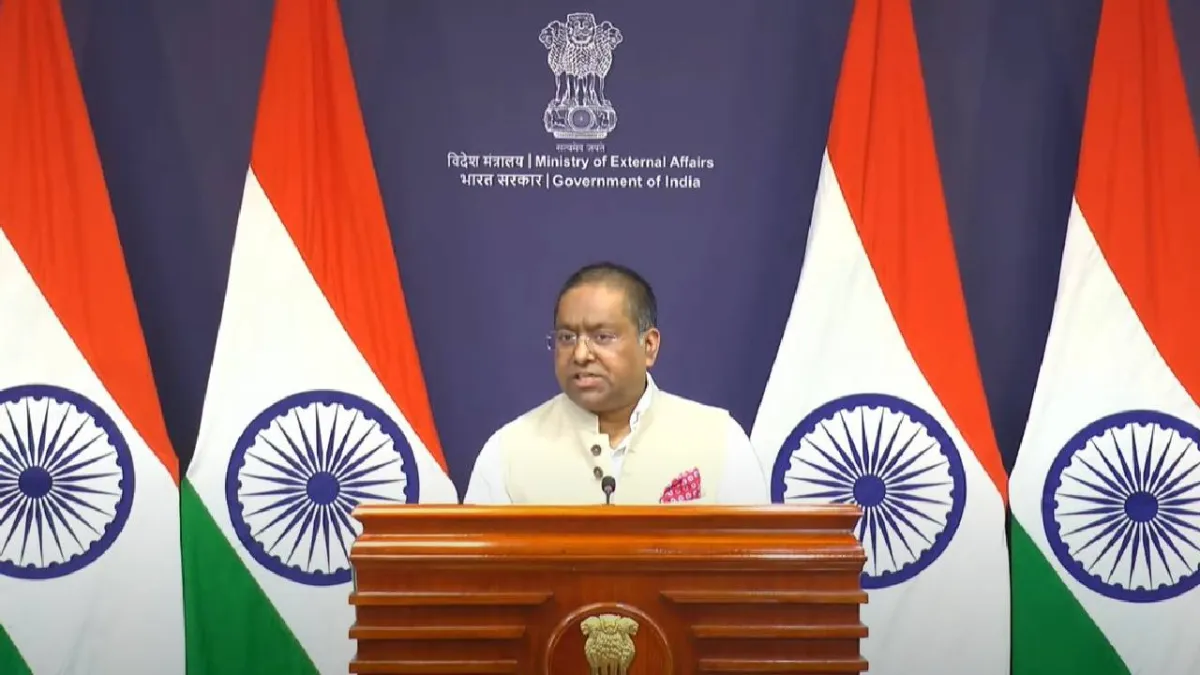India has delivered a strong and clear message to Turkey, emphasising that bilateral relations can only be sustained on the basis of mutual respect and sensitivity to each other’s concerns. This comes in the wake of Turkey’s open support to Pakistan during the recent escalation of tensions between India and Pakistan, following the Pahalgam terror attack in Jammu and Kashmir.
The Ministry of External Affairs (MEA) spokesperson, Randhir Jaiswal, stated, “We expect Turkey to strongly urge Pakistan to end its support to cross-border terrorism and take credible and verifiable actions against the terror ecosystem it has harboured for decades. Relations are built on the basis of sensitivities to each other’s concerns”. India’s message is not just a diplomatic formality but a reflection of the deep frustration in New Delhi over Ankara’s perceived insensitivity towards India’s core security concerns.
Background: Rising Tensions After Pahalgam Attack
Tensions between India and Turkey have sharply escalated after the Pahalgam attack in April, where 26 Indian tourists lost their lives. India blamed Pakistan-based Lashkar-e-Taiba for the assault, and in response, launched Operation Sindoor, targeting terror launch pads across the border. Turkey, along with Azerbaijan, publicly supported Pakistan during this conflict, both diplomatically and, as alleged by Indian officials, militarily by supplying drones and other equipment to Islamabad.
This support has not gone down well in India. The government and public alike have expressed their anger through widespread calls for economic and tourism boycotts of Turkey. Indian travel agencies have reported a 60% drop in bookings to Turkey and a 250% surge in cancellations, which threatens millions of dollars in revenue for Turkey’s tourism sector. Major Indian travel platforms have stopped promoting Turkish destinations, and even academic and business ties are being reassessed.
India’s Core Demands
India’s primary demand is for Turkey to use its influence with Pakistan to end support for cross-border terrorism. The MEA has reiterated that no meaningful dialogue with Pakistan is possible unless Islamabad takes concrete action against terror groups operating from its soil and hands over wanted terrorists to India. The government has also made it clear that the Indus Waters Treaty remains suspended, declaring, “blood and water cannot flow together”.
India has also criticised Turkey’s repeated statements supporting Pakistan’s position on Jammu and Kashmir at international forums, including the United Nations, and has taken note of Turkey’s military cooperation with Pakistan, especially during recent hostilities.
Impact on Bilateral Relations
The fallout from Turkey’s stance is already visible. The Indian government has cancelled a $2.3 billion shipbuilding contract with a Turkish firm, citing the need to promote domestic capabilities, though many believe the decision was influenced by Ankara’s support to Islamabad. Indian authorities have also revoked the security clearance of Turkish-linked companies operating at Indian airports and are considering replacing Turkish contractors in public projects.
Public sentiment in India has shifted sharply against Turkey, with hashtags like #BoycottTurkey trending on social media and calls to shun Turkish goods, services, and tourism. The diplomatic chill is further underlined by the postponement of the credentials ceremony for Turkey’s new ambassador to India.
Historical Context and Future Outlook
India and Turkey have shared cordial relations for decades, with cooperation in trade, culture, and humanitarian aid, as seen during India’s Operation Dost to help Turkey after the 2023 earthquake. However, Turkey’s increasing alignment with Pakistan, especially on the Kashmir issue, has created a major fault line in the relationship.
Experts believe that unless Turkey recalibrates its approach and shows greater sensitivity to India’s concerns, especially regarding terrorism and Kashmir, the diplomatic rift is likely to persist.High-level engagement between the two countries is expected to remain limited in the near future.


